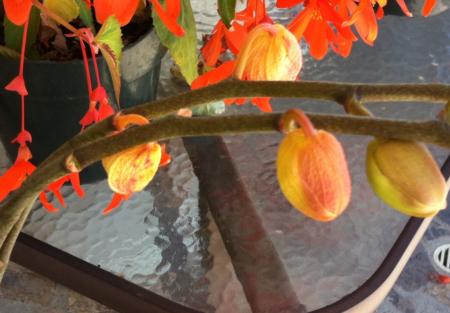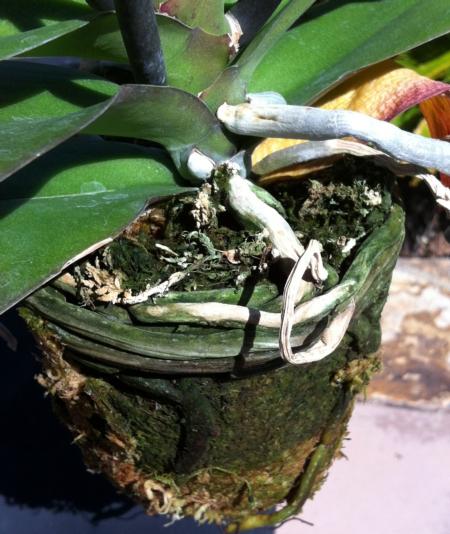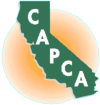Summer 2012 Field Observations
Orchid problems
Was it a bug, a mite, a disease? The orchid buds (fig. 1) were aborting; plants were dying. It was thought that these symptoms must have had some biological cause. Of course the first action is to drench it with a fungicide, but to no effect. No insects were present. Several species of mites, however, were observed feeding on the pollen in open flowers and in the potting media, so the damage must have been caused by mites, right? Should they be sprayed with a miticide? Nope.

Fig. 1. Orchid buds showing signs of wilting and eventual abortion.
Not all damage is caused by an organism. The plants in this situation were being well watered and fertigated on a daily basis until they were moved to a different facility and watered every ten days with city water. The roots had been sitting in media with an EC of 1.6, which is known to be detrimental to orchid roots in sphagnum, and visible salt deposits were observed on pot surfaces (fig. 2). The recommended EC is between 0.6 and 1.0 and the scientific recommendations for an EC of >1.5 is to leach immediately. If it is >1.0, the recommendation is to back off the fertilizer concentrations until the EC is back to the recommended levels. These are common conditions for orchids, but different plants have different needs, and different potting media will react differently with differing ECs. You should know what EC levels are tolerated by your plants, and do your best to modify the water and fertigation so that salt levels remain safe.

Fig. 2. White crusty deposits indicate water evaporation and salt deposits on the media surface.
James A. Bethke
Farm Advisor, Nurseries and Floriculture
UC Cooperative Extension San Diego, North County Office
151 E. Carmel St., San Marcos, CA 92078
(760) 752-4715 phone, (760) 752-4725 fax
jabethke@ucdavis.edu
http://cesandiego.ucdavis.edu/












